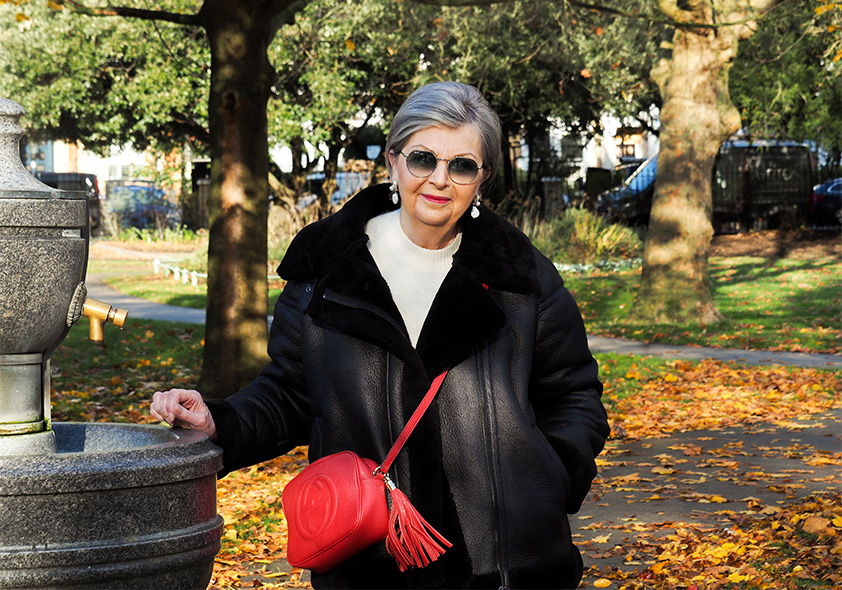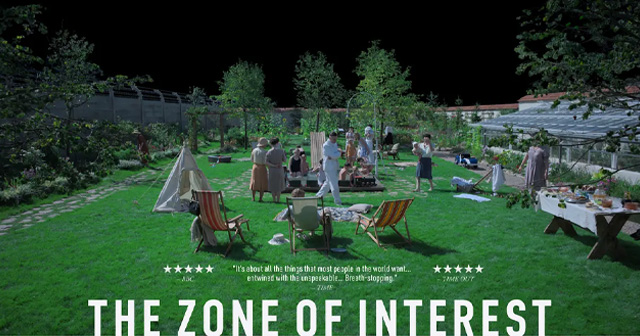
Be honest. When I say the two words ‘Climate Change’, what is your first thought? Maybe you have already decided not to read any further because the whole existential threat that it poses is too big, too difficult and too terrifying to contemplate. And also, you and I are likely to be long gone before our planet gets so hot that all life as we know it ceases to exist… So why spend time worrying about something that it feels impossible to affect personally, and which is best left to governments, climate scientists and the younger generation?
Because being too old to care should be no excuse and because we all have agency when it comes to our individual choices and the way that these impact global warming.
I am assuming that no-one reading this believes that ‘we’ve always had weather and now is no different from the past’. A few old (and they are invariably old) climate change denialists do still exist, but most are no longer taken seriously (except perhaps in parts of the USA) because the weight of evidence of man-made climate change is scientifically incontrovertible. However, those who’d rather stick their heads in the sand tend to accept the reality of global warming but prefer a cautious, gradualist approach whilst still embracing the continued need for both fossil fuel production and use. Another argument is that if a billion people on the planet make real sacrifices to cut their emissions while the other 7 billion carry on regardless, then the whole thing is futile and we’re all going to hell in a hand cart anyway.
However, I decided that, rather than the low-grade background niggling worry I have about climate change, I’d find out as much as I could* to see whether there are any glimmers of hope in the current climate (sorry - bad pun).
First - a quiz to see how much you already know, with, hopefully some surprising answers - given below. GHG = Greenhouse Gas:
1. Which country has the largest economy in the world, with a GDP in 2019 the size of China, Japan and Brazil combined, with emissions for each person roughly three times the global average?
2. Which country is the second largest economy in the world, the second most populous country and the world’s largest emitter of GHG?
3. Which was the first major economy to commit to a net zero target?
4. Which country has seen GHG emissions fall to a point which means they are the same as they were in 1879?
5. Which President withdrew the USA from the Paris Agreement of 2016 which had as its stated aim to: “hold the increase in the global average temperature to well below 2ºC above pre-industrial levels and pursue efforts to limit the temperature increase to 1.5º above pre-industrial levels”?
6. Which US President reversed the decision of his predecessor to withdraw from the Paris Agreement in 2021?
7. Which UK Prime Minister announced a delay from 2030 to 2035 in the ban on new petrol and diesel vehicles and on gas boilers in all new homes from 2025 to 2035.
8. Which country is the world’s largest renewable energy producer and consumer, achieving an average of 26% annual growth in renewable energy between 2010 and 2022? It is also the world’s largest manufacturer of renewable energy equipment, including 80% of the world’s solar panels in all manufacturing stages.
9. In which country do 29% of GHG emissions come from transport - cars and trucks?
10. By 2022 which country accounted for nearly 60% of the world’s electric car sales according to the IEA, which expects the country to retain 40% of the market even in 2030.
The answers are: 1. USA, 2. China, 3. UK, 4. UK, 5. Trump, 6. Biden, 7. Sunak, 8. China, 9. USA, 10. China
In this quiz, I have tried to reflect the critical issues in the climate change debate. Obviously, highly populous countries with a large landmass and huge economies like the USA and China, are likely to have the highest carbon footprints, both individually and collectively. The UK is interesting because we were one of the first to industrialise and to rely on fossil fuels (mostly from coal mining) to do so, but we now live in a post-industrial economy combined with policies which have significantly reduced our GHG emissions to levels last seen over a hundred and fifty years ago. However, there is still no room for complacency, because although we were the first major economy to commit to a net zero target, the UK remains only halfway to reaching its net-zero target for 2050.
The other glaringly obvious point about climate change is that it is highly politicised, especially in the USA which will continue to have by far the most significant impact on global warming than any other part of the world - including China. After winning the 2020 presidential election, Democrat Joe Biden announced an ambitious framework to tackle climate change, develop green infrastructure and promote environmental justice, while rebuilding the economy following the Covid-19 pandemic. All of which is in marked contrast to his predecessor Donald Trump, a Republican, who spent his term dismantling environmental regulations and vocally opposing climate action. Trump is currently slightly ahead of Biden in the polls to win this year’s presidential election in November which, if you care about climate change, should be of great concern.
What happens in China with a population of 1.4 billion obviously matters greatly too because of its impact on global GHG emissions. However, the IEA’s (International Energy Agency) latest outlook shows that China’s demand for fossil fuels is set to peak in 2024. In 2022 fossil fuel accounted for 83.4% of primary energy consumption - down from 97.5% in 1970. Renewable power output trebled between 2017 and 2022 and China is now home to one third of the world’s renewable energy capacity. Again, according to the IEA, China will install 50% of new global renewable capacity from 2022-2027 and is set to dominate global supply chains of low carbon technologies like solar panels and wind turbines. In 2022, 29% of the cars on Chinese roads were electric, compared to 1% (around 3 million) in the USA.
I have to admit to finding some of these statistics surprising, some of them alarming and some of them give grounds for (slight) optimism. Many climate activists say that whatever is being done, it’s too little, too late. And before I started reading around this I had the impression that climate was low in the governmental agendas of both China and the USA, which together account for around 40% of GHG emissions (third and fourth are India and the EU at 6% each, and the UK is just 1%). However, both superpowers are currently committed to significant investment in clean, green, renewable technologies. Maybe not as fast as they should to meet net zero targets by 2050, but it’s not nothing. There is even a possibility that global fossil fuel consumption may peak this year so that GHG emissions will at least begin to go down rather than up.
And what about you and I? What can we do? The first is to let go of scepticism and think about the world that our grandchildren will inherit. On a personal level we can at least start to consider our individual contribution to climate change (fuel and meat consumption, transport, insulation in our homes etc). At a political level we can write to our representatives to tell them that we care about climate change and would like to see policies which support a green agenda. I heard Rory Stewart say recently on the podcast ‘The Rest is Politics’ that a new Labour government should immediately announce the planting of millions of trees. I think we could all get behind that and my new Member of Parliament will definitely be receiving several emails from me on the subject of climate change.
The point is to feel some degree of personal agency. Let’s take as our model a speech by Winston Churchill, in the spring of 1940 when, as a country, we were facing the possibility of being invaded by our enemy. He’s realistic, promising Britons only “blood, toil, tears and sweat”. But he also offers agency: “We shall fight on the beaches, we shall fight on the landing grounds, we shall fight in the fields and in the streets, we shall fight in the hills.” And he admits the possibility of failure: “If this long island story of ours is to end, let it end only when each of us lies choking in his own blood upon the ground.”
A bit melodramatic you may think, but the comparison conveys the existential threat to our future that is climate change. Changing course won’t be easy, but each of us can do our bit and at the very least we can pull our heads out of the sand and wholeheartedly support every effort that is being made to save our planet from catastrophe.
Tricia x
*If you are interested in reading more, I found The Carbon Brief articles on China, the USA and the UK most illuminating: https://www.carbonbrief.org/
https://interactive.carbonbrief.org/the-carbon-brief-profile-china/
https://www.carbonbrief.org/the-carbon-brief-profile-united-states/
Watch Our Latest Video...
Spring Makeup For Mature Women
Sally shows you how to experiment with colour for a more vibrant spring makeup look...
Upcoming Events:
Friday 3rd May


Film Club: Zone of Interest
Available on Amazon Prime
Watch the film beforehand and join us for a group discussion!
Day: Friday 3rd May 2024
Time: 4 pm
Link: https://us02web.zoom.us/j/86109288705?pwd=TUgzQW5IK0VnUGI2MGdtb0FQN3hxZz09
Meeting ID (if needed): 861 0928 8705
Password (if needed): LOOKFAB













